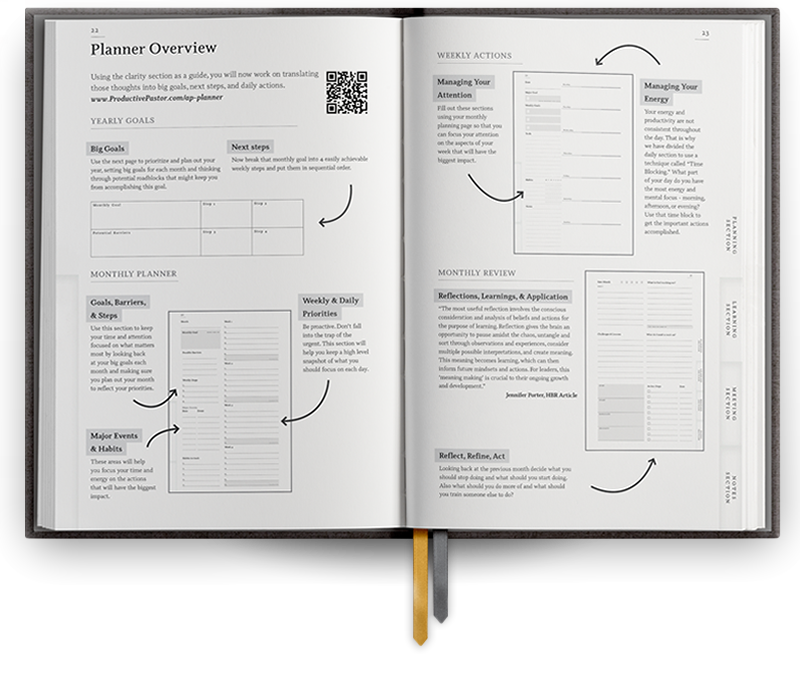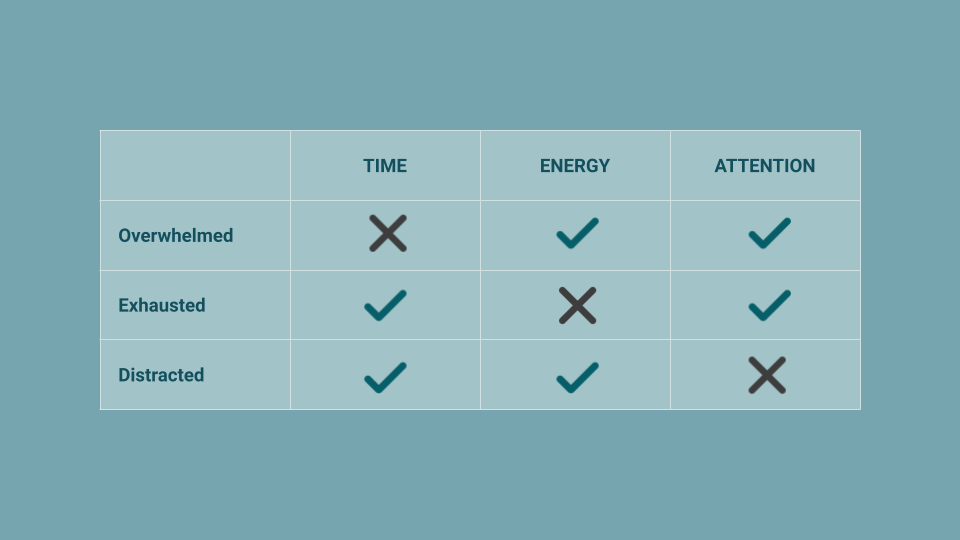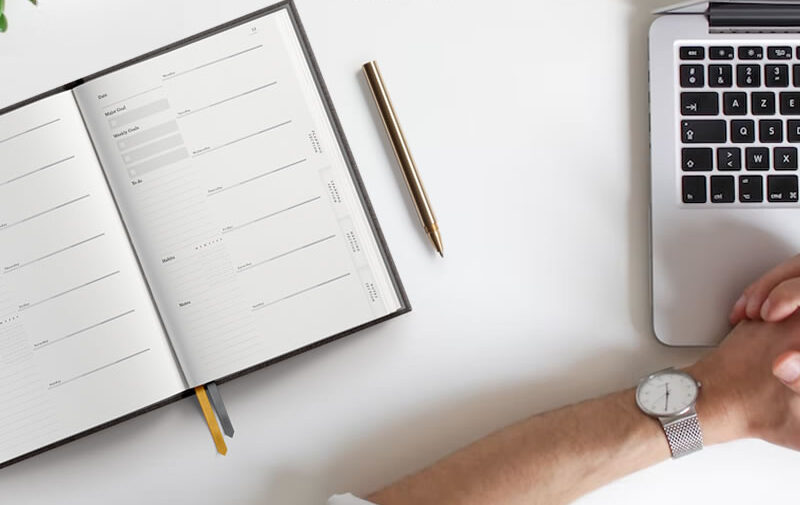PRODUCTIVE PASTOR
Planner
Big goals are easy to accomplish when broken up into small daily actions.

Tips For Sticking To Your Plan
- Be accountable to someone
Just like it works better to work out with a partner, according to Brainworks, having someone be your accountability partner with your schedule can help keep you on track. Check in with a friend occasionally to discuss what can be improved. - Plan for flexibility
This may sound counterintuitive, but events and deadlines will always pop up unexpectedly and you need to be prepared. Make sure to keep some free time in your calendar each week to deal with new things that may present themselves. - Schedule time for yourself
An important part of every schedule is making time for yourself. Schedule time for activities you enjoy. You’re not too busy for this—every person needs time to decompress. It will help, not hurt, your productivity to take breaks. - Give yourself grace
No one is perfect, and no one can be perfectly productive all the time. If you fall off the wagon with your schedule and need to take an evening to binge watch television, take it. Don’t beat yourself up or give up completely just because you need a break.
The 3 Pillars of Productivity
The TEA acronym was coined by entrepreneur Thanh Pham, host of the The Productivity Show podcast. After studying many productivity systems, he saw the need for a simpler, more holistic framework, comprised of three key pillars:
- Time. It all starts with the way you manage your schedule, your priorities, and how you invest your time — not only the quantity of time you devote to certain tasks, but the quality of this time. For instance, some time investment today may save you lots of time tomorrow.
- Energy. Your mind and your body are tools that need fuel. Deep work requires mental and physical energy. No mental and physical fuel, no meaningful productivity.
- Attention. To direct your attention, you need to know what your goals are. Then, you have to sustain your attention by staying focused on the goal and by avoiding distractions.
Any of the three pillars missing, and your productivity and well-being at work will suffer. If you have energy and attention, but not enough time, you will feel overwhelmed. Lots of time and attention, but not enough energy, and you’ll end up exhausted. Finally, lots of time and energy, but not enough attention, and you’ll be distracted. You need all three pillars to be productive without sacrificing your mental health.

Some people have expanded the framework and named it TEAM instead to account for the relationship between motivation and productivity, but I would argue that motivation is a factor of your mental and physical energy. The more motivated you are, the more energy you will have to tackle your goals. Conversely, if you feel demotivated, you are likely to experience low energy levels.
How to apply the TEA framework of productivity
The TEA framework is simple but has implications for many areas of your life and work. In essence, it boils down to three principles:- Don’t spend your time, invest your time. What can your present self do for your future self? Answering this question is a great way to decide how to invest your time. For instance, you’ll find that scrolling on social media and revenge bedtime procrastination are probably not it. Instead, you could automate some tedious tasks, or book one full afternoon to record videos in a batch, or plan a trip to visit fellow founders in other cities and learn from them. But don’t overkill it. If you suffer from time anxiety, it may be tempting to try and always invest your time in a directly meaningful way. But idleness can also be a way to invest your time, letting your mind wander to let your imagination run wild and generate new, fresh ideas in the process.
- Fuel your body and your mind. Whether it is the food you eat, the amount of sleep you get, or the content you consume, make sure to give your body and your mind enough energy. Cook yourself healthy meals (or buy some healthy ready-made dishes if you’re not into cooking), don’t cut down on sleeping, nourish your mind with thought-provoking content and consolidate your ideas with journaling… There are many ways to sustain your levels of energy. Again, sometimes, it means doing absolutely nothing — which may not feel productive, but will recharge your batteries for later, better, more enjoyable work.
- Plan for distraction. If you find it hard to stay focused, don’t fret: it’s completely normal. Our mind is designed to be distracted, to keep on scanning the room around us for new information — or potential danger. Instead of beating yourself up, try to plan your work around your goals and triggers. If your goal is to write a report for an upcoming meeting, you will need a few hours of uninterrupted work. What triggers could get in the way of your focus? Is it your phone, chatty colleagues? Adapt your workspace to minimize these distractions, whether it’s leaving your phone in another room, blocking distracting apps, or locking yourself up in a meeting room with a “do not disturb” post-it note.
